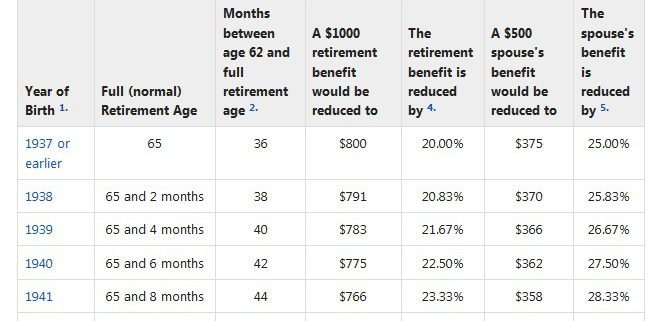North Carolina offers incredible scenery, ranging from the Appalachian Mountains to the ocean and everywhere in between. From the beautiful Asheville area in Western North Carolina to the sandy beaches of the Outer Banks, understanding the state tax system is crucial for anyone moving to or currently living in the Tar Heel State.
North Carolina is generally considered a moderately tax-friendly state, with state income taxes expected to decrease further in the coming years, putting it in the bottom third of states’ income tax rates. Whether you are considering a move, recently moved, or already here and seeking information, we’ve got you covered. Below, we break down everything you need to know about state taxes in North Carolina.
Key Takeaways
- North Carolina is considered a moderately tax-friendly state.
- The state levies a flat individual income tax rate of 4.25% as of the taxable year 2025.
- Property taxes vary by county and municipality.
- North Carolina does not have an estate tax.
North Carolina State Income Taxes
North Carolina employs a flat individual income tax rate, meaning all taxpayers, regardless of income, pay the same percentage of income tax. For taxable years beginning in 2025, the rate is 4.25%; for any year after 2025, it will be 3.99%. For the most up-to-date information, see the North Carolina Department of Revenue (NCDOR) website.
A new tax structure was enacted under Session Law 2023-134, gradually lowering the individual income tax rate on a trigger-based system. Depending on specific triggers, income tax rates could be further reduced, starting with tax years beginning in 2027.
NC Property Taxes
North Carolina does not employ a statewide property tax. Instead, all property taxes are levied at the county and municipality levels, meaning taxes vary depending on where you live. As of 2023, the state’s effective property tax rate was 0.62%.
Depending on your location, you may owe both county and municipal property taxes. For example, Asheville residents pay property taxes as listed:
- City tax rate: 44.19 cents per $100 of assessed valuation.
- County tax rate: 54.66 cents per $100 of assessed valuation.
- City School tax rate: 11.00 cents per $100 of assessed valuation. Not all City of Asheville residents pay the City School tax.
For most property taxes, the lien date is Jan. 1. Put simply, this means the individual who owns the property on that date is liable for the taxes. One exception to this rule is the Motor Vehicle Property Tax.
There are several exemptions, including those for individuals over 65, permanently or totally disabled individuals, disabled veterans, farm or forestry landowners, and individuals with wildlife conservation lands. Check with your county of residence for more information.
North Carolina Estate Tax
North Carolina does not levy an estate tax. It is important to note that your estate may still be subject to federal estate taxes if its value is high enough. If you’re unsure about your estate planning needs, speaking with a financial advisor is a wise idea. Horizon’s Wealth Management services include estate planning, ensuring your peace of mind as you navigate your finances.
North Carolina Retirement Tax
North Carolina is considered moderately tax-friendly for retirees. Retirement income is as follows:
- Social Security benefits: exempt.
- Military pensions: exempt.
- All other retirement income: subject to standard flat income tax rate.
As discussed, North Carolina does not have an estate tax, allowing retirees to pass on their financial legacy without worry of additional taxes.
Bottom Line
North Carolina is moderately tax-friendly, with a flat-rate individual income tax that places the state in the bottom third of the US. Additionally, the average property tax is relatively low, there is no estate tax, groceries are taxed at a lower rate (mostly 2%), and prescription drugs are exempt from sales tax entirely.
If you live here in the Tar Heel State, recently relocated, or are considering a move, Horizon’s Wealth Management can help you manage and understand how state taxes will affect your finances.
NC Taxes FAQ
Is North Carolina a tax-friendly state?
North Carolina state taxes make it a moderately tax-friendly state. It is placed in the bottom third of state income tax rates as of 2025.
What is not taxed in North Carolina?
Social security income, military pensions, inheritance/estate and prescription drugs are exempt from taxes in North Carolina. There are also property tax exemptions for several categories. Additionally, groceries are taxed at a lower rate than normal sales tax, usually 2%.
Is it cheaper to live in NC or SC?
South Carolina is considered slightly more tax-friendly for retirees due to additional deductions allowed for qualified retirement income and the state’s overall income tax structure. However, if you are in a high tax bracket, SC does employ a graduated tax structure for its state income tax. If you’re choosing between the states, an advisor at Horizon’s Wealth Management can assist you in finding your best tax outcome.
At what age do you stop paying property taxes in North Carolina?
There is no age at which you stop paying property taxes in North Carolina. There is an exemption that can be applied for, which reduces property taxes for individuals over 65 with an income below a certain threshold. For 2025, that limit is $37,900.












